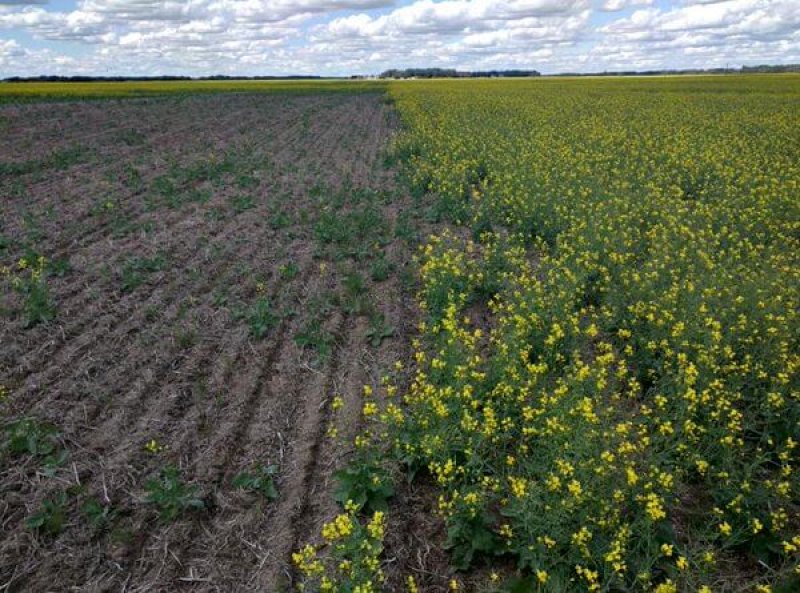The bright yellow rapeseed flowers that adorn the British countryside have largely disappeared after crops this season failed.
The flaxen dandelion – used to make rapeseed oil – is a common sight on farmland in late spring but has suffered a downturn partly due to flea beetle larvae infestations, Farmers Weekly reported.
Farmers have struggled to control the pest after the EU banned neonicotinoid seed treatments in rapeseed crops six years ago.
A number of hectares of the crop completely failed, and any others that made it through the tough winter months then had to contend with the flea beetle – leading to a very small rapeseed crop
…
In Britain, Chloe Lockhart, combinable crops adviser with the National Farmers Union, last year said that cabbage stem flea beetle was a ‘huge concern’.
And last year they had ‘near perfect conditions for drilling and still crops are being destroyed’. She added: ‘The risk is extreme, it just gets eaten in front of your eyes.’ There may yet be an upside for UK farmers as availability of the old crop is fast disappearing.































